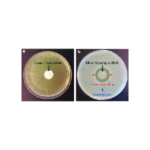 Researchers have developed a biocompatible, silver-releasing scaffold that inhibits infection from methicillin-resistant Staphylococcus aureus, or MRSA, in bone. The team’s work was published in Tissue Engineering.
Researchers have developed a biocompatible, silver-releasing scaffold that inhibits infection from methicillin-resistant Staphylococcus aureus, or MRSA, in bone. The team’s work was published in Tissue Engineering.
The antimicrobial properties of silver ions and the biodegradable scaffold seeded with bone-forming stem cells could be used to coat implants and prevent bone infection, the team suggested in the study.
The authors experimented with the scaffold by seeding stem cells on 3D scaffolds with and without MRSA, and then evaluated bacterial biofilm formation to determine the effect of silver ions on bone infection. The study showed that silver ion-releasing scaffolds can inhibit biofilm formation and support osteogenesis.
“Hybrid therapeutic approaches such as this combination of a regenerative and anti-infective platform are transforming our attack on complex musculoskeletal diseases,” co-editor-in-chief Dr. Peter Johnson said in prepared remarks.
Osteomyelitis, or bone infection, is characterized by severe inflammation and progressive bone destruction. The infection usually results from the spread of microorganism to the bone from an open wound caused by surgery or joint replacement. The most common bacterium is Staphylococcus aureus, which has been isolated in more than half of the reported osteomyelitis cases, according to the researchers.

